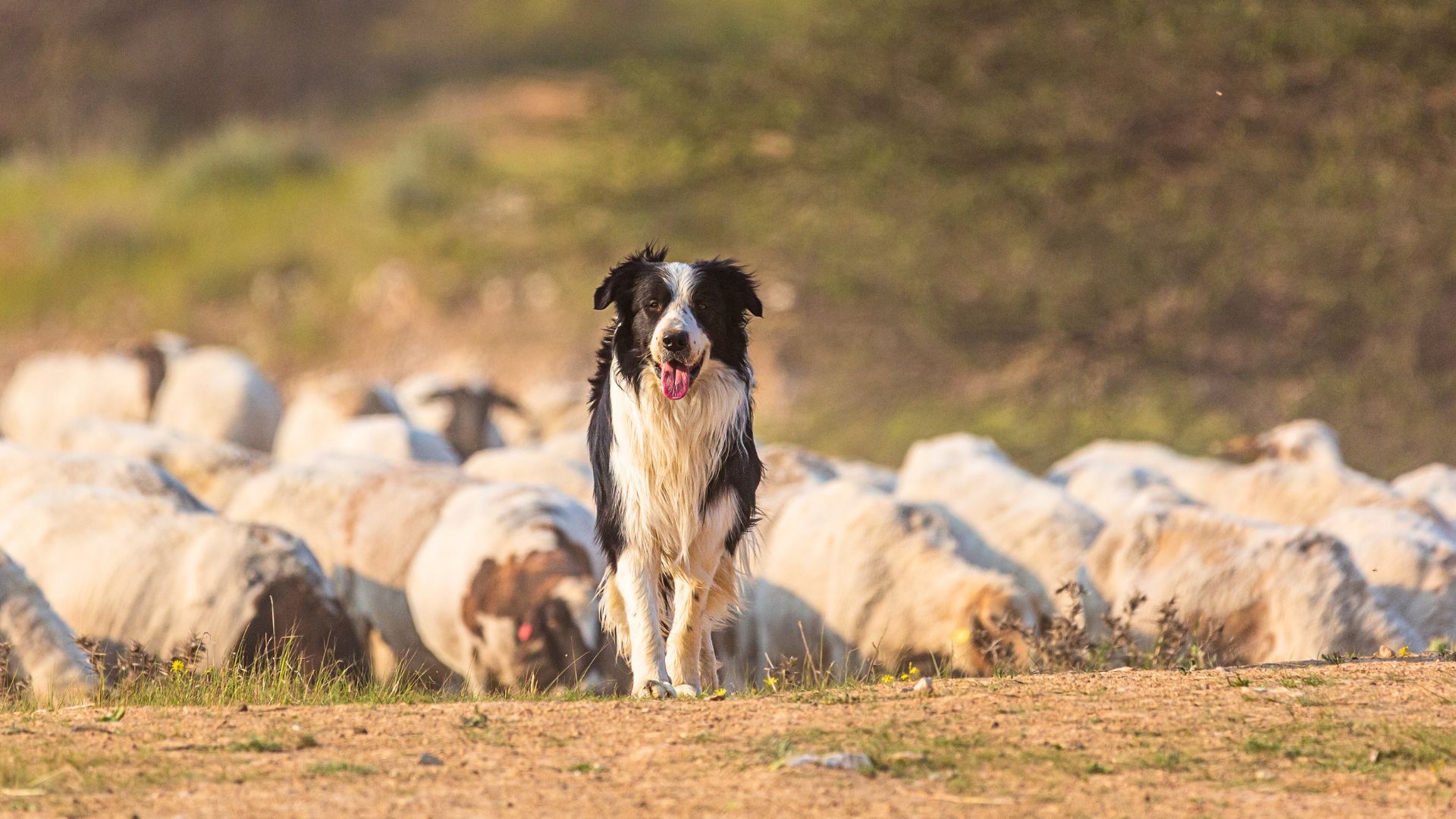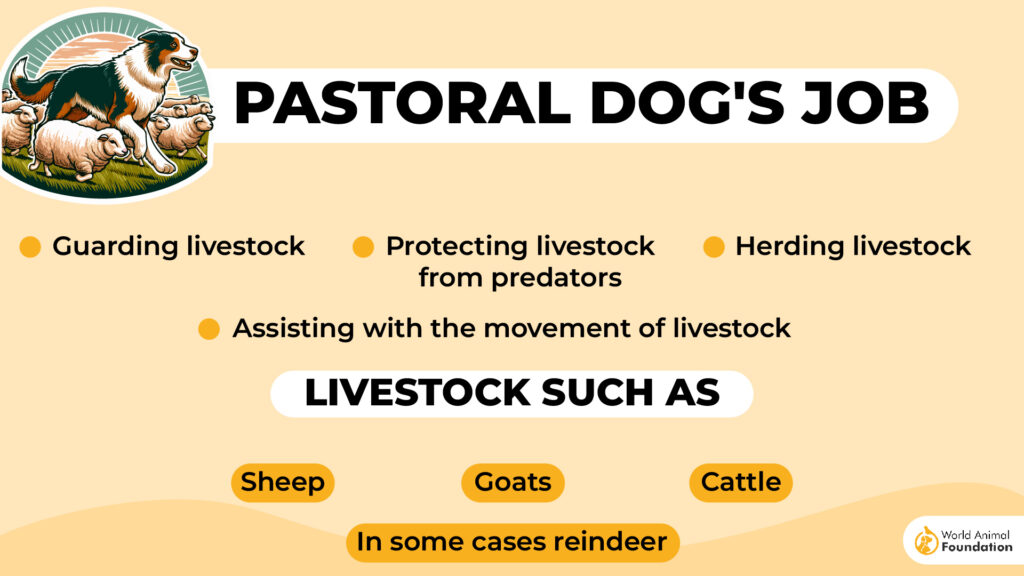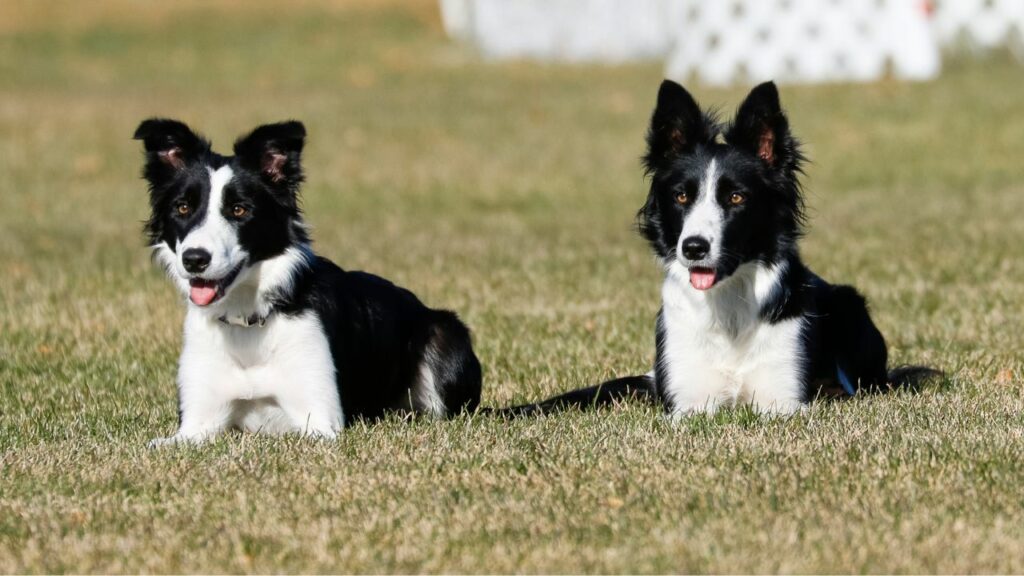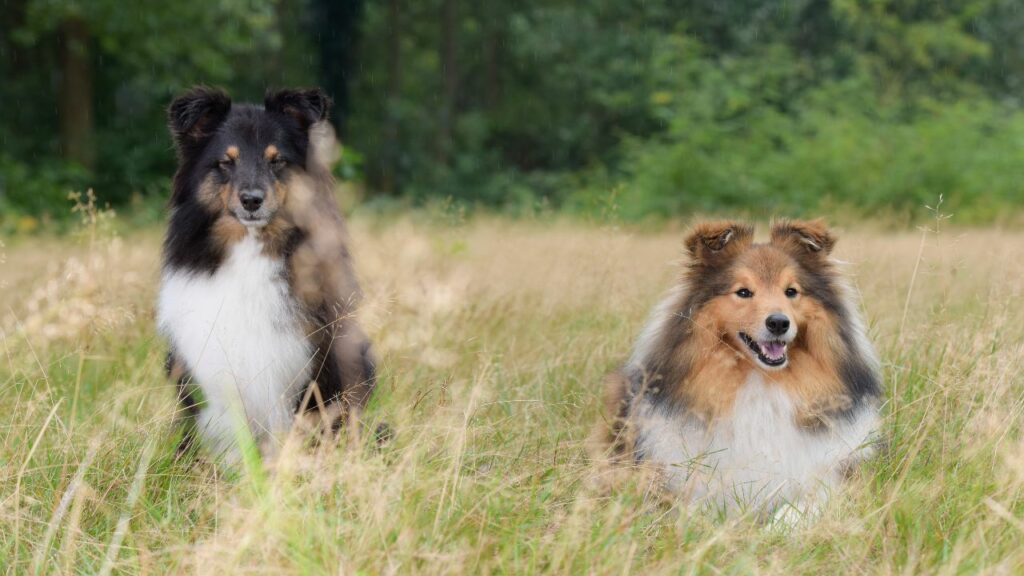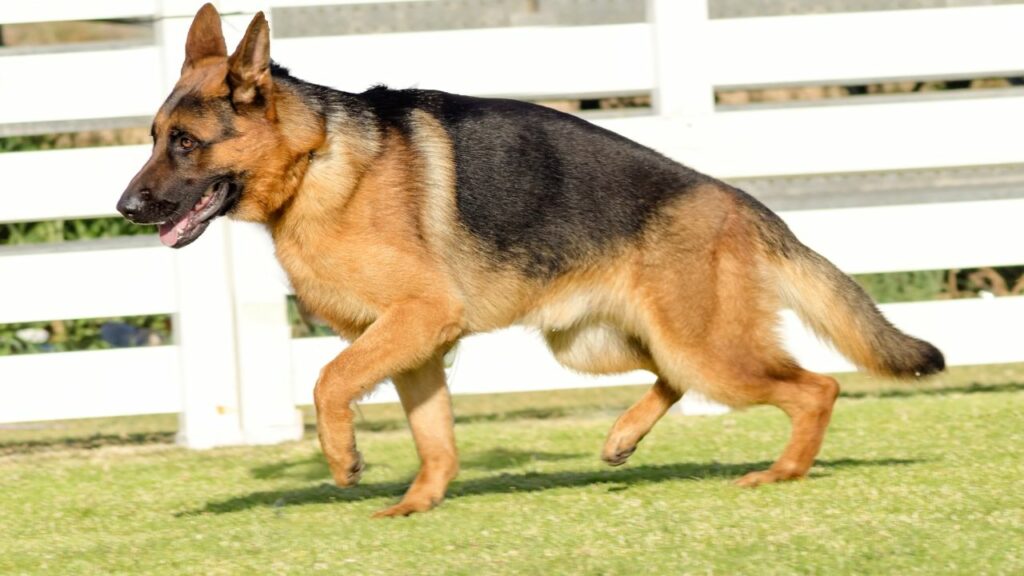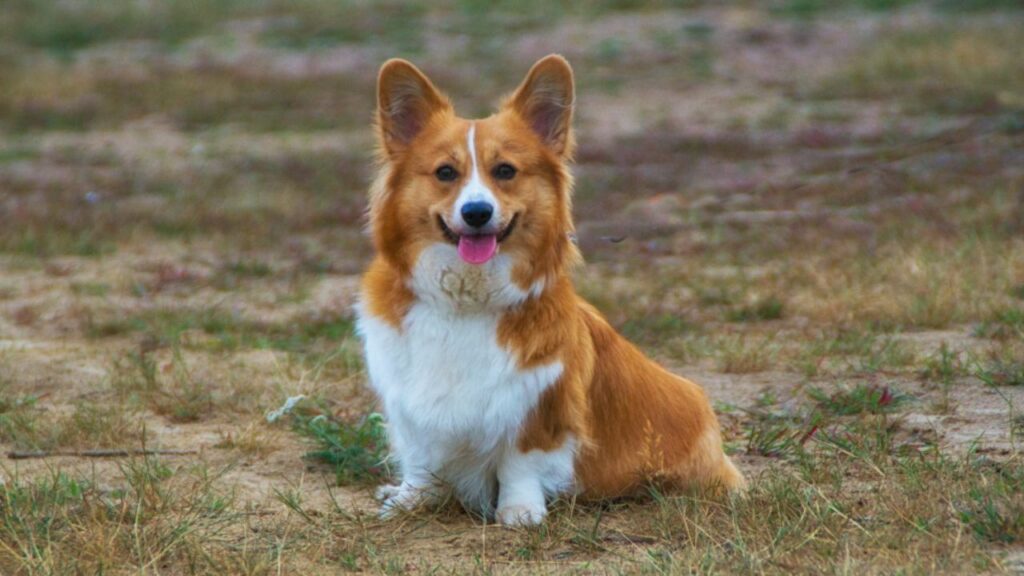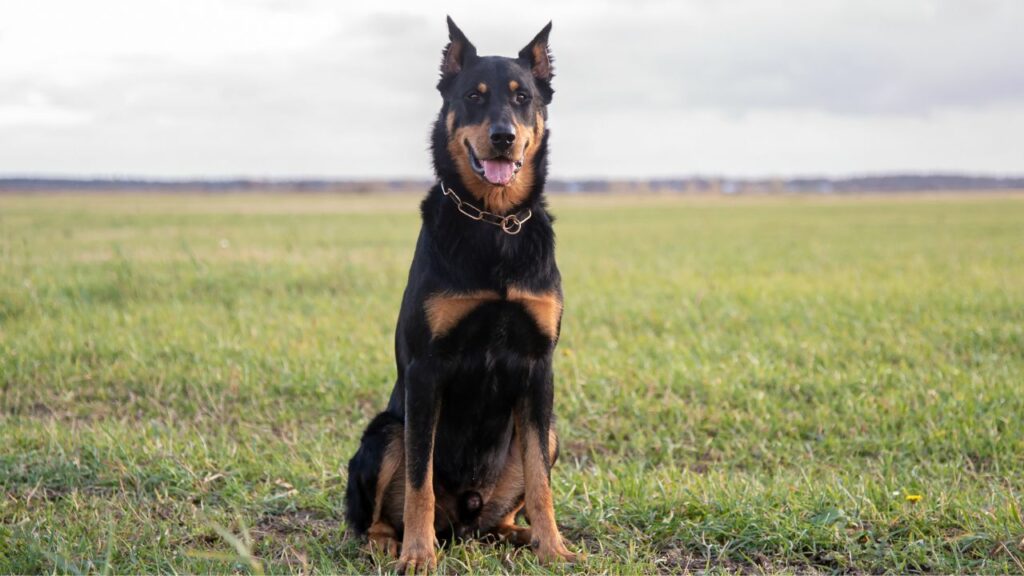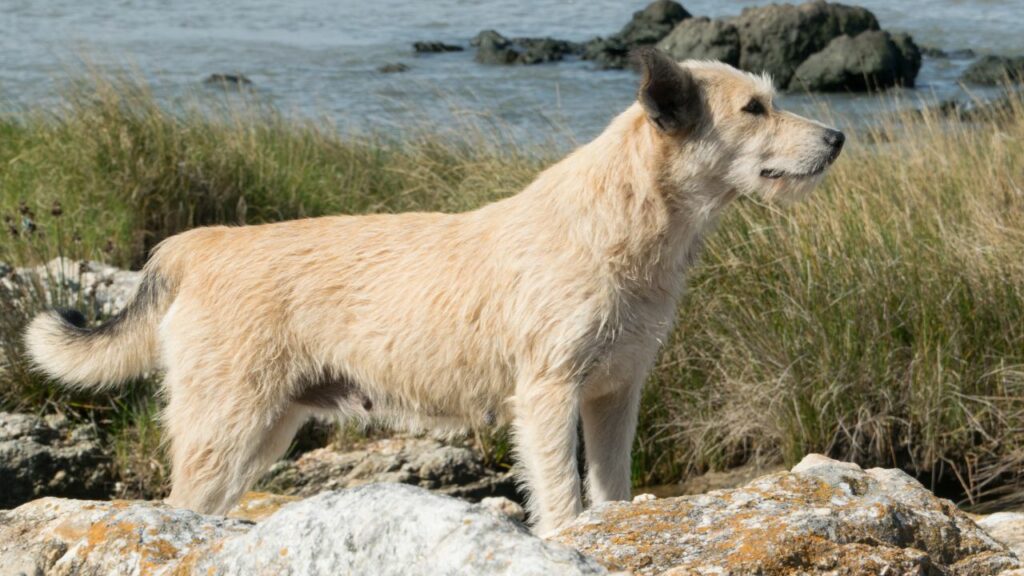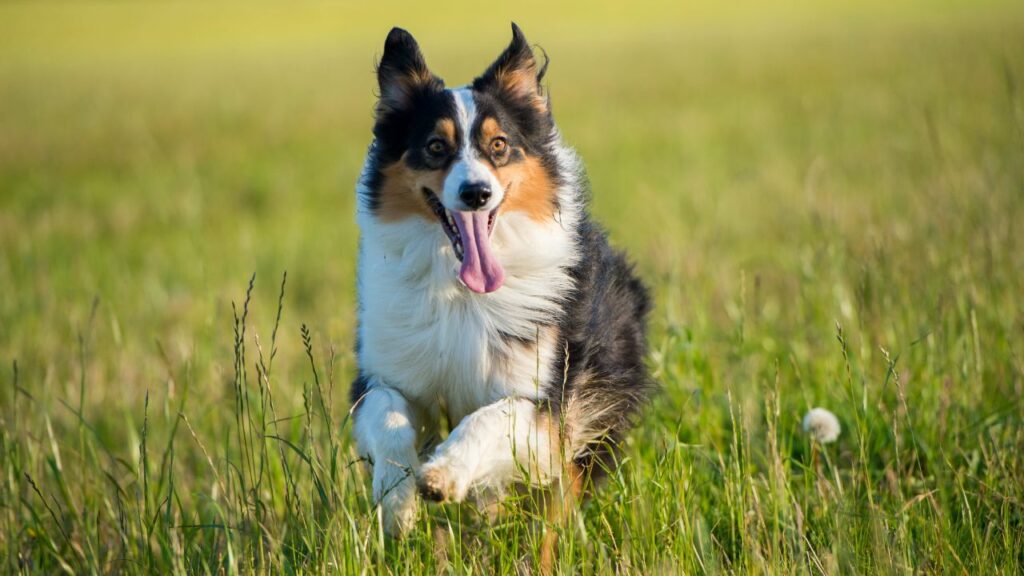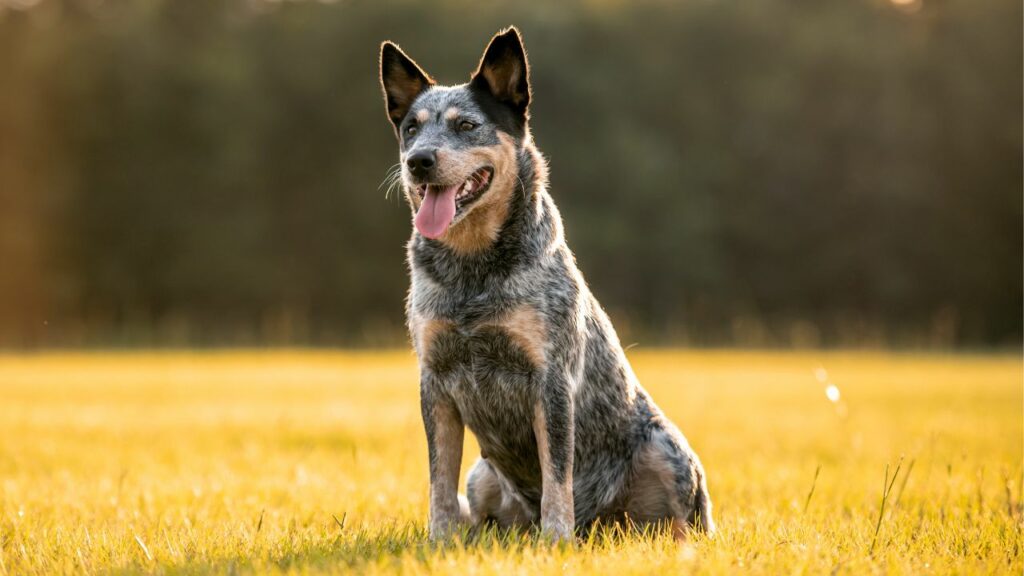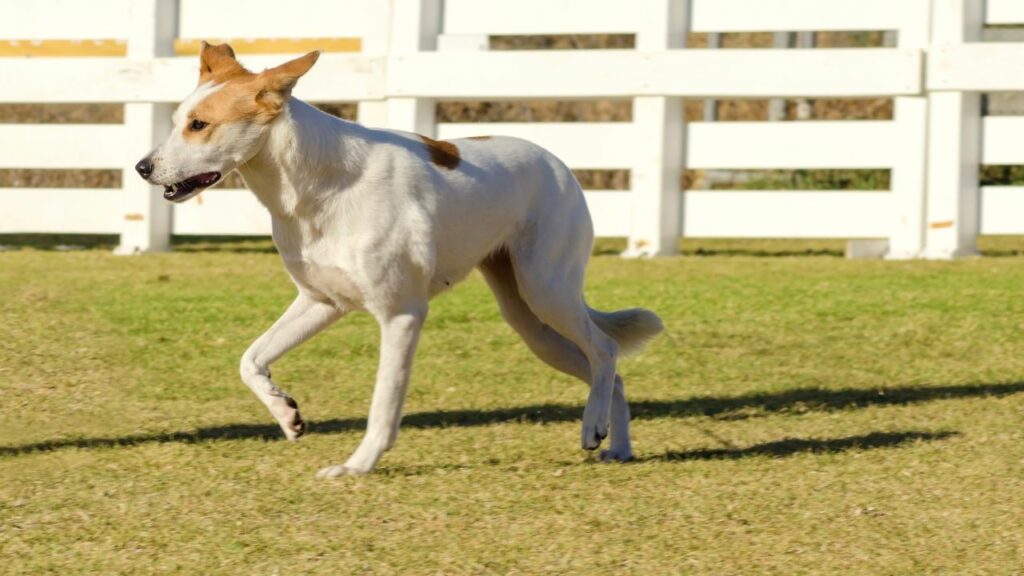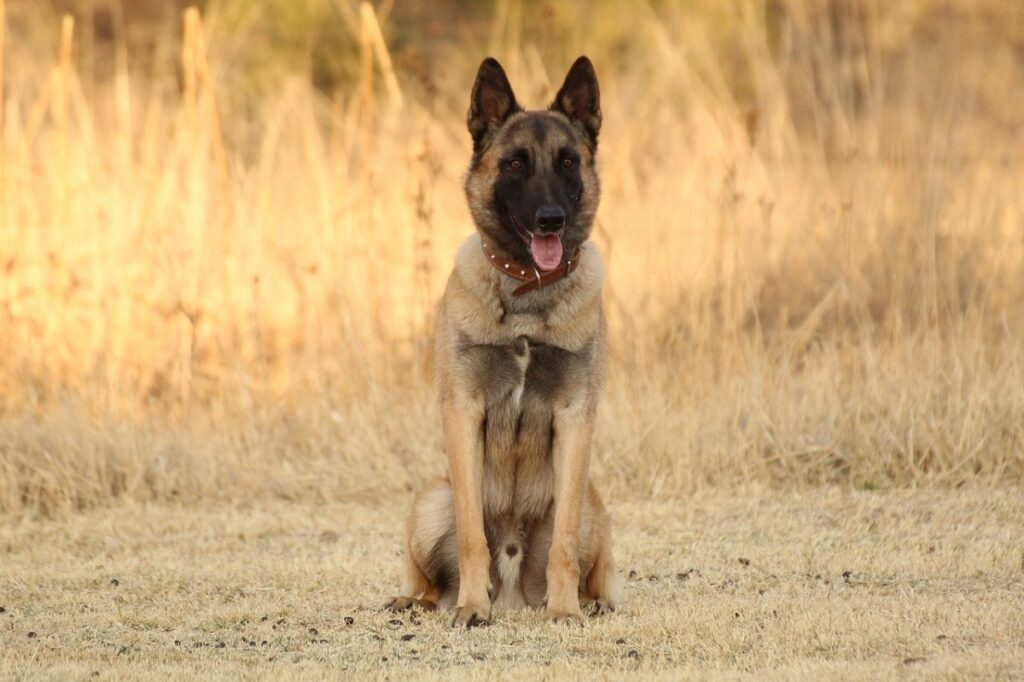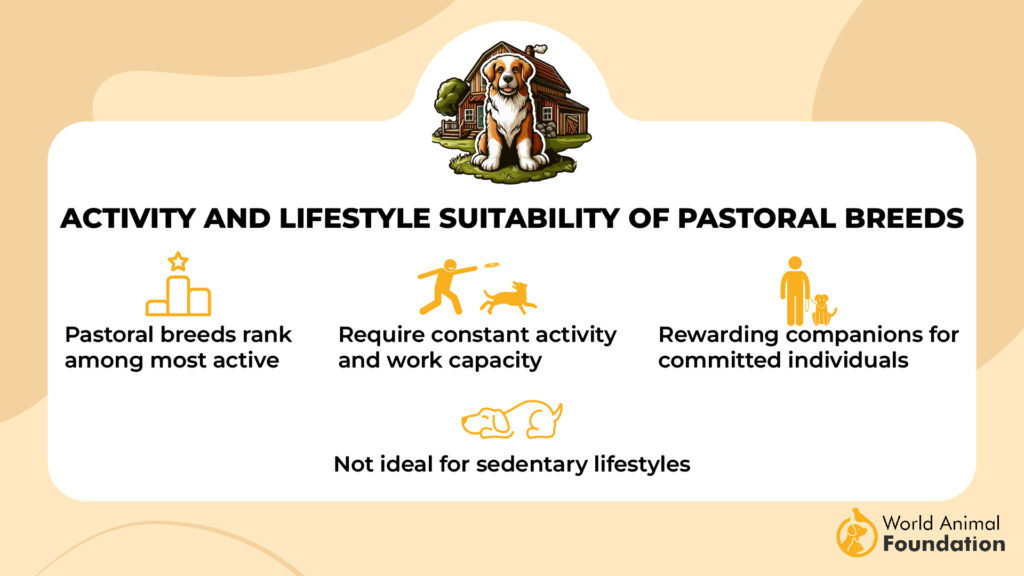Managing a farm requires a dedicated partner, and for centuries, pastoral breeds have filled that role. These intelligent, energetic dogs are bred for herding livestock, offering invaluable assistance to farmers. From the classic Border Collie to less common but equally capable breeds, the right canine companion can significantly improve farm efficiency and livestock management. This list explores ten exceptional pastoral breeds, highlighting their unique strengths and suitability for various farm sizes and livestock types, helping you choose the perfect four-legged farmhand.
Pastoral dogs, or herding dogs as they’re often called, are working partners on the farm and much-loved family pals. According to PDSA, these dogs are born to lead and watch over livestock, no matter the weather. They love a good day’s work and need tasks to stay happy.
These energetic pups are smart cookies who love to learn new tricks. Herding is their game, and they’re so good at it that sometimes they might try to herd other pets or even you! They’re brainy, adaptable, and always ready for action—perfect for folks who like to stay active and have fun.
Thanks to their fluffy double coats, pastoral dogs are ready for any kind of weather. But remember all that fluff means they’ll need regular grooming to keep looking sharp.
Now, let’s jump in and meet 10 awesome pastoral dog breeds that might just steal your heart!
Pastoral Dog Breeds
1. Border Collie
The Border Collie, a British herding dog, is a medium-sized, super-smart pooch that’s mostly seen helping out with sheep on farms. They’re not just good at herding; they’re also stars at search and rescue jobs, tracking, and sniffing out important stuff. They often pick a favorite person and stick to them like glue.
@amazing.doggos
Amazing#bordercollie #collie #herdingdog #sheep #workingdog #amazing #doggo #fyp #dog #dogtok
♬ original sound – Bryan
These dogs have a natural talent for guiding sheep and keeping them together, which is why they’re famous for rounding up animals for the shepherd. Border Collies love to bark, especially when they see something moving because they’re always on the lookout.
They tend to shed a lot of fur, especially when the seasons change. You’ll need to brush your Border Collie every week to keep their coat tidy, but they don’t need fancy haircuts.
Being one of the brainiest breeds around, Border Collies pick up on training really quickly and love to make their owners happy. Petplan notes that they’re full of beans and super bright, which is great, but it means they’re not always the best choice if you’ve never had a dog before.
2. Shetland Sheepdog
The Shetland Sheepdog, or Sheltie, is a small but mighty herding dog from Scotland’s Shetland Islands. They were bred to be quick, smart, and on their toes, always ready to herd sheep—or anything else that moves, like squirrels, birds, or even kids.
The American Kennel Club reports that Shelties are whizzes when it comes to learning new things. They’re so good at it that they often work as service or therapy dogs, and they’re also great at letting you know when someone’s around, thanks to their protective nature.
A Sheltie loves to be by your side, following you everywhere. They really need company and don’t like being alone much. They’re a chatty bunch, too, and will bark to communicate or alert you.
With lots of pep, Shelties need plenty of playtime. They’re great with kids and have enough energy to keep up with them all day long. Training a Sheltie is a breeze if you’re gentle and patient. They’re softies at heart, so kind words and treats work wonders.
Their beautiful coat does need some care—brushing every day will keep them looking their best and prevent any pesky knots.
3. German Shepherd
The German Shepherd is a strong and lively dog, full of energy and always ready for action. They first came about way back in 1899 in Germany, where they were bred to round up sheep and help out on farms. Today, they’re known for all sorts of jobs, from helping people with disabilities to working with police and even in the army. According to Statista, they were the top pastoral dog in the UK in 2022!
@xkeemerzx
#germanshepherd #sheepdog #charlie #tiktok #doglife
♬ original sound – XkeemerzX
These smart pups are great for families, especially when they get the training they need. Without it, they might get nervous or too bossy. They’re super smart and love to make their owners happy by following commands and learning new things.
German Shepherds have lots of energy and need to stay busy with exercise and games to keep them happy. If they don’t get enough to do, they might start barking a lot or chewing things they shouldn’t. They love being outside, so take them on long walks or play with them in the park to keep them fit and content.
German Shepherds need a good brush now and then to keep their coats looking nice. How often depends on what they’re up to and the time of year. Usually, giving them a good grooming every month or two is just right. But when it comes to spring and fall, they shed a lot. That’s when you might need to brush them more often to keep their fur from getting everywhere.
4. Pembroke Welsh Corgi
The Pembroke Welsh Corgi may be on the smaller side, but don’t let their size fool you—they’re strong, active, and have a big heart. The Queen herself is a fan of these cuddly dogs. Corgis have been helping out with herding and hanging out as family buddies in Wales for a long time, and they’re still herding champs today.
Corgis make loyal, loving pets that fit right into family life. They’re smart little cookies and love having a job to do. They keep their eyes peeled and will let you know if someone’s at the door with a bark—they’re fearless like that, which comes from their days dodging cattle.
Training a Corgi is usually pretty smooth, even if they like to stick to their guns sometimes. They’re good pals to have around the house. A quick brush once a week keeps their coat neat, but they do shed, so you might find fur here and there.
One thing to watch out for is their weight—they love their food a bit too much and can get heavy, which isn’t great for their short legs and long backs. So, keep the treats to a minimum and make sure they get plenty of walks.
5. Beauceron
The Beauceron is a big, smart, and lively herding dog—think of a Border Collie’s smarts in a much larger package. They’re not just strong and good-looking; they’re also known for being gentle, making them fantastic family protectors and buddies.
Despite their size, Beaucerons are graceful and well-balanced. They weren’t originally bred for rounding up sheep like some other shepherd dogs, but they’re so adaptable that they can be trained for herding, protection work, agility, and even winter sports like skijoring.
This breed is smart and needs lots of exercises and brain games to stay happy. They’re pretty strong-willed, so they’re best with owners who know how to handle dogs. When trained and socialized right, Beaucerons are calm and protective, especially great with kids and those who need a gentle guardian.
Early training is key for Beauceron puppies because they’re energetic and need to learn how to play nice with everyone, pets included. Without enough to do, a bored Beauceron might get into trouble. They have a thick double coat that needs a bit more brushing than usual, especially when they shed their fur twice a year.
6. Berger Picard
The Berger Picard, also known as the Picardy shepherd, is a unique and rare dog from northern France. Loved by farmers and sheepherders in Picardy for their herding skills, these dogs are as independent and smart as they are friendly and kind-hearted. They form strong bonds with their families and can win anyone over with their distinctive looks and quirky smiles that seem almost human.
WebMD says that these dogs are confident yet laid-back, packed with energy for days of herding or just playing around. Loyal to the core, a Berger Picard will always be ready to stand up for their family if needed.
Caring for their coat is pretty straightforward—no trimming needed, except maybe a little tidy-up around the ears. They don’t shed too much, so a bit of grooming now and then keeps them looking sharp. With their lively spirit and tough nature, Berger Picards are always up for an adventure.
7. Australian Shepherd
The Australian Shepherd, affectionately known as the Aussie, is a huge hit in the United States, loved for its endless energy and brilliant mind. These dogs are not just fun and engaging companions; they’re also incredibly hardworking, serving as top-notch assistance dogs.
American ranchers initially favored Aussies for their exceptional herding abilities, but these dogs gained widespread popularity for their impressive performances in rodeos, showcasing not just their herding skills but also their ability to do tricks.
View this post on Instagram
Aussies are versatile, taking on roles such as Seeing Eye dogs, hearing dogs, drug detectors, and search and rescue helpers, thanks to their sharp intelligence. They thrive on human interaction and require lots of engagement. Despite their vibrant nature, they have a tender side and don’t like being alone for too long, making them ideal for people who can spend a good part of the day with them, including those working from home.
Some joke that Aussies only shed twice a year, each time lasting six months! They’re heavy shedders, indeed, requiring daily brushing to manage their fluffy coats.
8. Australian Cattle Dog
The Australian Cattle Dog, sometimes called the Australian Heeler or just Cattle Dog, is a herding breed from Australia, created to help drive cattle across the country’s expansive terrains. This breed shines in endurance, agility, and athleticism, perfect for the demands of herding.
With its sharp mind, unwavering loyalty, and impressive work ethic, the Australian Cattle Dog is a standout in intelligence among dog breeds. It’s born with a herding instinct, easily trained, and always ready for a challenge. This dog is not just a hard worker; it’s also a vigilant guard and watchdog, fiercely independent and protective. While it has a strong bond with its family, its herding nature might make it a bit too much for families with little kids or smaller pets.
These dogs need to keep their brains busy and love training that feels like play, responding well to positive encouragement. With energy to spare, the Australian Cattle Dog needs plenty of activities to stay happy. They’re not ones for lounging around and do best when they have a job to do.
Caring for their coat is pretty easy. They have a short, double coat that keeps them protected in all kinds of weather, needing just a weekly brush to stay clean and tidy.
9. Canaan Dog
The Canaan Dog, also known as Kelef K’naani, is Israel’s national dog and has a history that stretches back thousands of years. Originally bred for guarding and herding livestock in the Middle East’s deserts, these dogs are still quick on their feet and ready to work.
Canaan Dogs are tough, smart, and able to learn quickly, but they do best when they’re well socialized from a young age. They’ve been employed in various roles, from herding and guarding to tracking and even serving as guide dogs. While they can be wary around strangers and new situations, they’re incredibly loyal to their families, often vocal and full of fun.
These dogs like to think for themselves and might find repetitive training dull. They enjoy variety in their training sessions, along with plenty of praise and the occasional treat. Canaan Dogs may also challenge their owners for leadership, needing someone who is confident and consistent in handling them.
The Canaan Dog has a short double coat that requires more frequent brushing during their bi-annual heavy shedding periods. For the rest of the year, a weekly brush should suffice to keep their coat in good condition.
10. Belgian Malinois
The Belgian Malinois is one of the four distinct Belgian sheepdog breeds, each bred for herding in different regions of Belgium. Originally tasked with protecting livestock and the farm, the Belgian Malinois still embodies the protective and vigilant qualities of a top-notch guardian today.
@sheepdogjunction
Herding with a Belgian Malinois. #sheepdogjunction #sheepdog #sheepdogsoftiktok #sheepherding #herdingbreed #herdingdog #dogtraining #dogtrainingtips #dogtrainingtricks #dogtrainingadvice #viral #fyp #fypシ #foryoupage
♬ My Kind of Woman – Instrumental – Mac DeMarco
This breed thrives on being part of a family, forming strong bonds with its members. They possess a sharp sense of smell and often display a high interest in toys, making them well-suited for active families who can match their energy levels. However, the Belgian Malinois is not the laid-back type; they are known to bark a lot, sometimes without any apparent reason.
The Belgian Malinois may not be the best fit for first-time dog owners due to their need for a confident handler and plenty of both physical and mental stimulation. Without experienced training and exercise, they may exhibit anxious and disruptive behaviors. They naturally tend to herd, driven by their instincts.
Their grooming routine is relatively straightforward, requiring weekly brushing and monthly baths, with extra care needed during their shedding seasons in spring and fall.
Choosing a Pastoral Breed: Are You Ready for the Energy?
If you’re thinking about bringing a pastoral dog into your life, get ready for action! These herding breeds are among the most active and thrive with plenty of tasks to tackle. They’re not suited for couch potato life but make fantastic, devoted pets for those who can match their high energy levels. Here’s a snapshot of what to expect when you choose a pastoral breed as your four-legged companion.
Final Thought
Herding dog breeds, especially those within the pastoral category, exhibit behavior well-suited for active roles and environments. Pastoral breeds, like the collie breeds, are not only adept at livestock protection but also thrive with the right training, proving to be valuable assets to farm life.
A pastoral dog breed loves engaging tasks, and providing them with proper nutrition, like high-quality pastoral dog wet food, is crucial for their well-being. Organizations like the Kennel Club offer resources and guidelines to ensure these good farm dog breeds are cared for in a way that nurtures their spirited nature.
Ultimately, the “best” pastoral breed depends entirely on your specific farming needs. While breeds like Border Collies excel with sheep, others like Great Pyrenees are better suited for livestock guardian roles. Researching temperament, trainability, and size is crucial. Consider your farm’s terrain, the type of livestock you have, and your experience level with working dogs. Choosing the right pastoral partner will not only enhance your farm’s efficiency but also bring years of loyal companionship.

